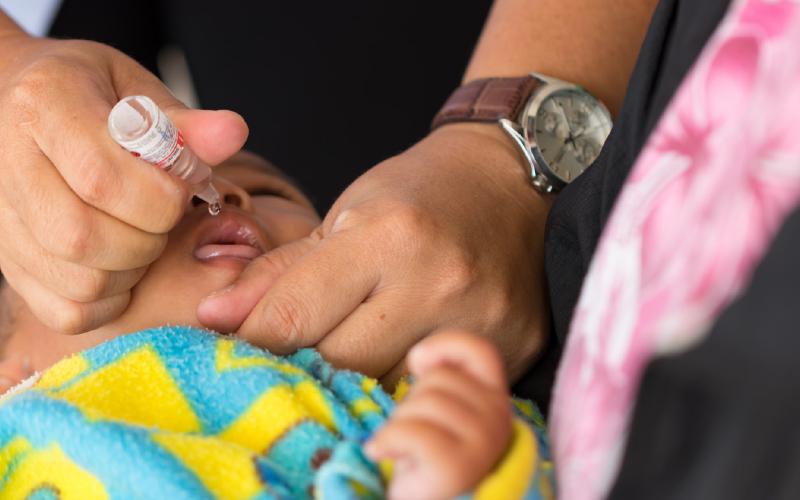COVID-19 vaccine: Consider oral immunization





As the global race for the first effective vaccine against the novel coronavirus disease (COVID-19) carries on, a team of UK researchers suggests that the development of an oral formulation be given a chance because of certain advantages concerning safety, efficacy, compliance, ease of manufacturing, and administration relative to an injectable approach.
“These factors are essential to consider when developing globally scalable immunization strategies against SARS-CoV-2,” the virus that causes COVID-19, according to Aman Mehan, Ashwin Venkatesh, and Milind Girish from the School of Medicine, University of Cambridge. [Ther Adv Vaccines Immunother 2020;doi:10.1177/2515135520946503]
An oral approach in the administration of vaccines has several benefits. For instance, Goffin and colleagues in their 2019 study suggest that the mucosal route may allow more potent induction of humoral (antibody-mediated) and cellular immune responses, allowing the body to respond effectively to respiratory challenges. [J Virol 2019;93:e00237-19]
Furthermore, the developing world can benefit from an oral strategy as seen with oral polio and rotavirus, in which the possibility of faecal shedding of oral vaccines speeds up herd immunity via oro-faecal transmission in close contacts. [Sci Rep 2018;8:1-7; Future Microbiol 2015;10:791-808]
Manufacturing of oral vaccines is also less demanding compared to an injectable approach, highlighting the scalability of such strategy. More importantly, the ease of oral inoculation eliminates the requirement for a trained healthcare professional to be present during vaccine administration, which then leads to lower cross-infection risk at healthcare centres while improving uptake and compliance.
“This may significantly expand practical options for vaccine distribution, particularly in resource-limited settings that are worst affected, given that other preventive measures, such as social distancing, may be harder to implement,” the UK researchers noted. [JMIR Public Health Surveill 2020;6:e18844]
In the past, thermally stable oral formulations have also been independent of a temperature-controlled supply chain. This had led to a more streamlined distribution logistics due to the removal of a significant contributor of cost in vaccine distribution programmes. [N Engl J Med 2017;376:1121-1130]
“It is possible that oral vaccines may be effective as a complementary approach, preferentially employed in resource-limited, population-dense settings,” the researchers said.
Oral immunization is also a practical strategy, and its implementation has been a resounding success in the prevention of various respiratory illnesses. For instance, the live oral enteric-coated adenovirus type 4 and type 7 vaccines have demonstrated a positive safety profile and robust efficacy in reducing the disease burden in several clinical trials. [Vaccine 2016;34:4558-4564]
The said vaccines work by causing an asymptomatic infection of the gut and subsequently creating a mucosal immunity to protect against future respiratory illness. [J Thorac Dis 2018;10:S2280–S2294]
Recently, an oral influenza vaccine has passed its phase II clinical trials, stressing the potential and ongoing active development of oral vaccines for respiratory disease. [Lancet Infect Dis 2020;20:435-444]
“The implementation of a vaccine is essential to accelerate herd immunity, enabling lockdown measures to be relaxed and socioeconomic activity to safely resume whilst limiting the case fatality rate,” the researchers said. “A concerted global effort has led to over 150 vaccines currently under development, [but] it is apparent that oral administration has been markedly under addressed as a potentially effective immunological strategy.”